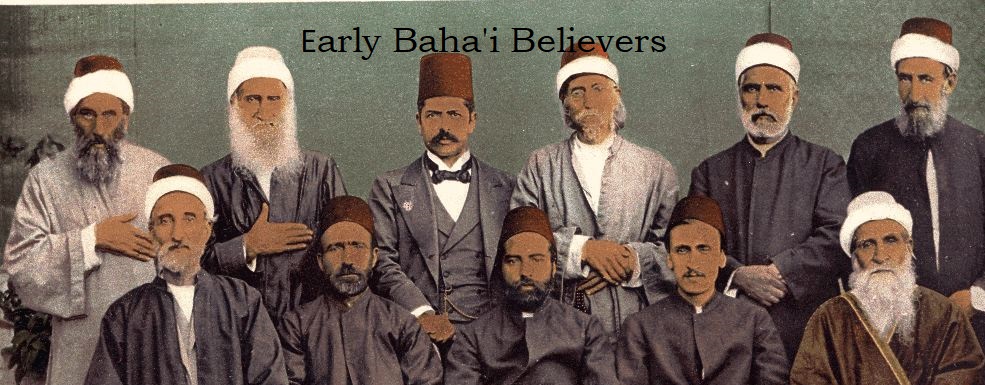
The 29th of May, 1991 marked the inauguration by the third Guardian, Joel B. Marangella, of the “The Last Appeal” on the Indian sub-continent. This was initiated by placing the first advertisement in the Times of India, with the title: AN APPEAL TO THE HETERODOX BAHÁ’ÍS, in which it was stated that: “you have repudiated the major provisions of the ‘Divine Charter’ bequeathed by the ‘Architect of the Administrative Order’ by removing the ‘Center of the Cause,’ the ‘expounder of the Word of God’ and the ‘sacred head and the distinguished member for life’ of the Universal House of Justice” i.e., the living Guardian. The Guardian had thus hoped that the Indian Bahá’ís would return to the Fold of the Covenant, rally to the support of the living Guardian of the Faith and join their fellow orthodox believers in preserving the divinely-conceived Bahá’í Administrative Order. Most of the Indian Bahá’ís, had never heard about the continuation of the Guardianship and had been told by their respective administrative bodies that the Guardianship had ended with the passing of Shoghi Effendi.
Appearing in the Times of India, a more comprehensive second advertisement, dated 7 March, 1992, informed the Indian Bahá’ís of the continuity of the Guardianship and of the existence of a living Guardian of the Bahá’í Faith. After the passing of the first Guardian, Shoghi Effendi, Charles Mason Remey, referred to by ‘Abdu’l-Baha as His spiritual son and who had been appointed by Shoghi Effendi as the President of the International Bahá’í Council, should have been permitted to assume responsibility, as the second Guardian of the Bahá’í Faith, but was prohibited from doing so by the Hands of the Cause.
Subsequently, the third Guardian put a third advertisement in the Times of India on May 16 and 17, 1992, exhorting the believers to summon the courage to sever themselves from the sans-Guardian organisation. This summons resulted in the historic formation of the Mother Bahá’í Council of India in Delhi with Mr. Vinod Kumar, a young and faithful Bahá’í, as its secretary. It had been the third Guardian’s desire for the Faith in India to develop favorably. Subsequently two more local councils were formed; one in the Bhagalpur district and the other in Thane, a suburb of Mumbai with a number of localities and individual believers declaring their loyalty to the “Center of the Cause” who is none other than the living Guardian of the Faith, Joel B. Marangella.
Encouraged by the sudden response from the Indian Bahá’ís, the third Guardian, on the occasion of the 100th year of the Ascension of Bahá’u’lláh placed a fourth advertisement in the Times of India on May 29, 1992, which called upon the Indian Bahá’ís to faithfully uphold the Covenant of Bahá’u’lláh by turning to the Guardian and severing their ties with the erroneously constituted sans-Guardian organization. The Guardian also welcomed the Indian Bahá’ís into the true Administrative Order, headed by the Guardian and founded upon the sacred, immutable and immortal provisions of Will and Testament of ‘Abdul-Bahá.
With these advertisments, the Bahá’í believers throughout India came to realise that the Guardianship is an integral part of the Faith and that any organisation calling itself the Bahá’í Faith without a living Guardian as the “sacred head”, is nothing more than a man-made organization, subject to corruption.
Overwhelmed by the success of the Orthodox Bahá’í Faith and the eagerness of the Indian believers to accept the Faith under the Guardianship, the third Guardian, Joel B. Marangella, sent two American believers, Mr. Frank Schlatter and David Maxwell, to assess the situation in India and while there, to teach and deepen the Orthodox Bahá’ís, during their visits to Delhi, Agra, Thane, Bombay, Aurangabad, Baroda, and Rajgir. Their visit enhanced the teaching activities of the Orthodox Bahá’ís and more firmly established the Orthodox Bahá’í Faith in India.
Subsequently, more advertisements appeared (fifth, sixth, seventh, eighth and ninth) and under the direction of the Provisional National Baha’i Council of India and with the cooperation of various local Councils, more than ten local councils were established and a number of individual Bahá’ís, residing in various parts of India, were brought into the Faith under the Guardianship.
